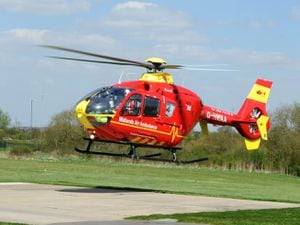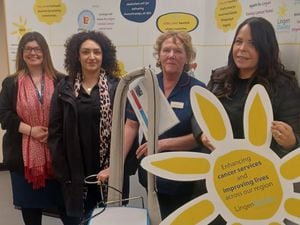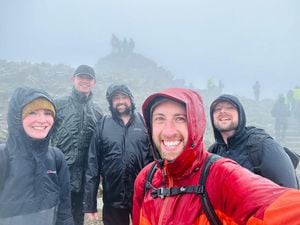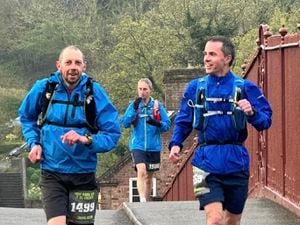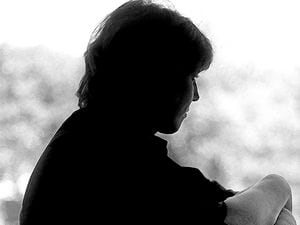Daughter speaks out over Shropshire mum's brain tumour battle
It was just over 13 years ago when Emily Hackworthy came home from school to find her mum Angela having a fit.
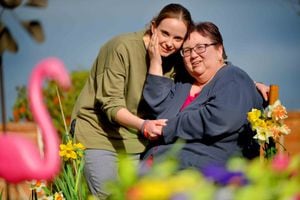
At the age of 11, her life was turned upside down when Angela was rushed to hospital and a scan revealed she had a brain tumour.
After an operation to remove as much of the tumour as possible, it was diagnosed as benign, but she has since received radiotherapy and chemotherapy treatment and last December was told the tumour was cancerous.
Emily, now 24, helps care for her 56-year-old mum alongside her father John, 66, at their home in Gobowen.
During Brain Tumour Awareness Month, she has spoken out about her mum's condition, the need for more funding for brain tumour research and a support group in Shrewsbury which has proven to be a lifeline.
Emily said: "I was 11 at the time. It was scary. I came home from school, I thought she was messing around and she fell back and had a fit."
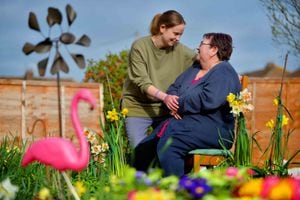
She said the brain tumour affected her mother's memory and speech and in recent months her family was told it had become cancerous.
Emily decided to contact the Brain Tumour Support charity and was told about a support group held once a month at the Hamar Centre at Royal Shrewsbury Hospital.
"It's for patients who have been diagnosed or anyone who has been affected by brain tumours," she said.
"It's nice to speak to other people in the same position.
Devastating
"I would urge anyone to find a local support group. I can contact the support group worker any time I like. It's good to know there's someone to talk to."
The charity Brain Tumour Research estimates that, in total, 16,000 people are diagnosed with some type of brain tumour each year in the UK.
It says brain tumours kill more children and adults under the age of 40 than any other cancer, yet historically just one per cent of the national spend on cancer research has been allocated to the devastating disease.
Emily says more funding needs to be spent on vital research into the condition.
She said: "Most people are aware they exist but it's not as well advertised as conditions such as breast cancer.
"A very low percentage of money is spent on brain tumour research.
"It should get more, it is one of the biggest cancers that kills."
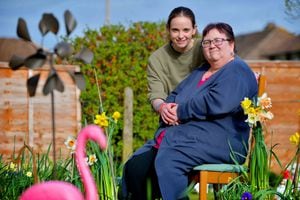
Brain tumours, whether cancerous or non-cancerous, can affect a patient physically, mentally, emotionally and socially.
Patients can lose some cognitive function, experience changes in personality and suffer long-term anxiety and fatigue.
The majority of patients have to reduce their work or give it up completely and more than 55 per cent have to give up their driving licences.
Brain Tumour Support offers individual support to anyone affected by any type of brain tumour – this includes patients, family, friends and carers.
The charity's Brain Tumour Support workers offer one-to-one help and run monthly support groups.
There is also specialist counselling available as well as online and telephone support.
There are currently 23 support groups up and down the country, including one in Shrewsbury, and the first group in Wales will be setting up soon.
Tina Mitchell Skinner, who founded the charity 16 years ago after losing her husband to a brain tumour, said: "In order for us to continue offering our services and expand into areas where we are needed, we need to raise funds.
“March is Brain Tumour Awareness Month in the UK and we are aiming to attract 100 new regular donors, each giving £5 per month – this will help us sustain our growth and plan for the future.
"It is so important that we raise awareness of this devastating, yet grossly underfunded, disease.”
To become a regular donor and help the charity, brain tumour patients and their families, see Brain Tumour Support’s website at braintumoursupport.co.uk

